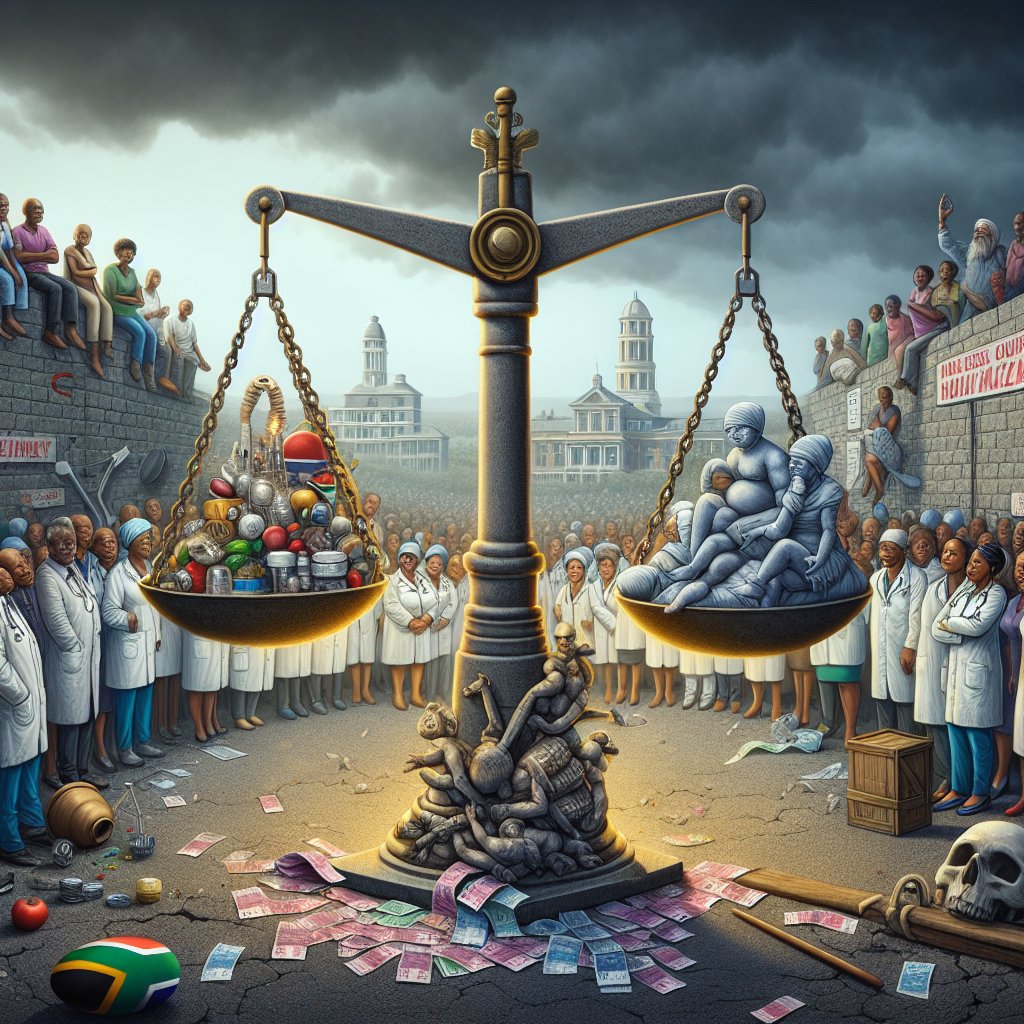Content created by AI
South Africa's NHI Bill: A Step Towards Universal Healthcare or a Recipe for Disaster?
The complexities of South Africa's healthcare system have long been a source of debate. The latest chapter in this saga is the National Health Insurance (NHI) Bill, which aims to overhaul the current system in favor of universal healthcare. However, the current course of action could significantly alter the healthcare landscape, potentially bringing more harm than good.
The proposed NHI Bill has been met with considerable skepticism from within the healthcare profession, the business community, and the opposition. The concerns raised about the bill are not limited to the ambition of its goals, but rather, its feasibility and the ramifications of its implementation. Despite this, the Bill has made its way through Parliament's National Council of Provinces (NCOP) without modification, indicating a disconcerting disconnect between the legislative process and the public outcry surrounding the bill.
With South Africa's reality featuring rolling blackouts, infrastructure collapse, and a struggling economy, the envisioned role of the state in the NHI seems questionable. By controlling health services, medical choices, and contracting with doctors, the government is positioning itself as the core operator within the sector. This approach is rife with danger as it risks overwhelming a state that is already facing multiple service delivery challenges.
The repercussions of these policies are daunting. Economically, the toll on the healthcare sector will likely lead to significant disinvestment at a time when funds are already scarce. The exodus of skilled medical professionals is another potential consequence, draining the country of much-needed expertise and exacerbating an already critical skills shortfall. Such developments could severely impact the workforce's health and further erode the tax base that sustains public services.
Financially, the staggering costs associated with the NHI, estimated at R400 to R700 billion annually, could be the proverbial "straw that breaks the camel's back." South Africa's fiscal position, strained by years of bailing out state-owned enterprises and contending with low economic growth, cannot sustain the additional financial burden the NHI Bill presupposes.
Public opposition to the passage of the bill in its current form points to a degree of frustration with the parliamentary process, which in this case, appears to have sidelined important feedback mechanisms. The insistence on passing the bill hastily, and remedying its flaws post-passage through litigation, undermines the legislative responsibility to produce well-considered, implementable, and constitutionally sound laws.
As the bill nears its completion, the window for public and private stakeholders to voice their opposition is closing fast. This is crucial as we confront the reality that while universal healthcare is a noble and necessary goal, the current iteration of the NHI Bill might cripple the very systems that, although imperfect, provide care for millions.
The solution should not revolve around dismantling functional parts of the current healthcare framework but rather in addressing and improving the inefficiencies of the public health sector. In this critical juncture, it is essential not to equate opposing the NHI Bill with opposing healthcare reform. Genuine improvement requires a careful examination of existing structures and an open dialogue about the best strategies for inclusive healthcare enhancement in South Africa.



